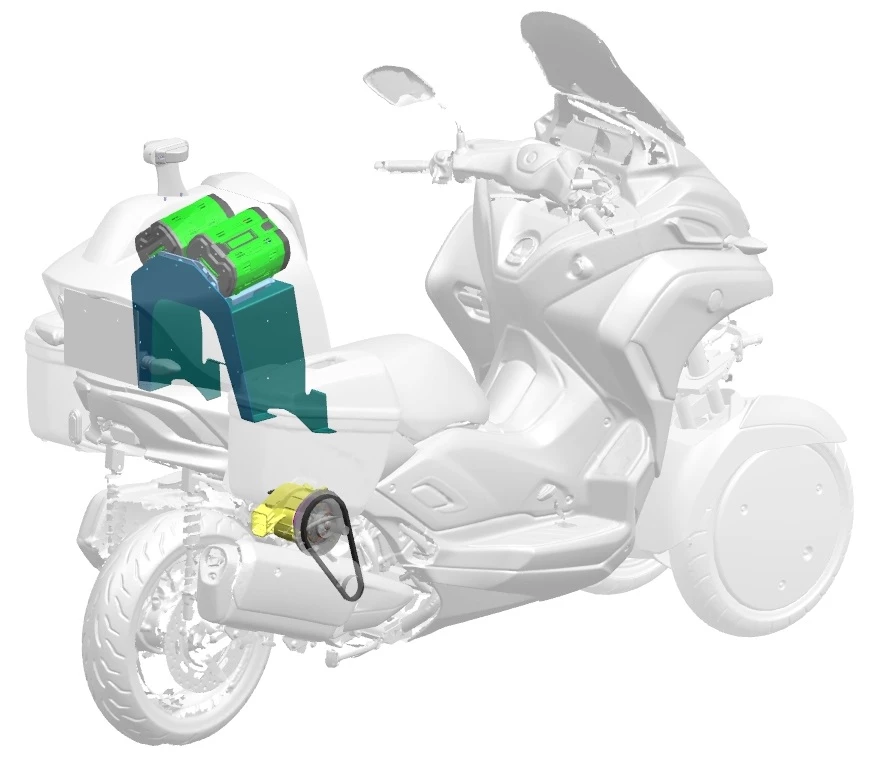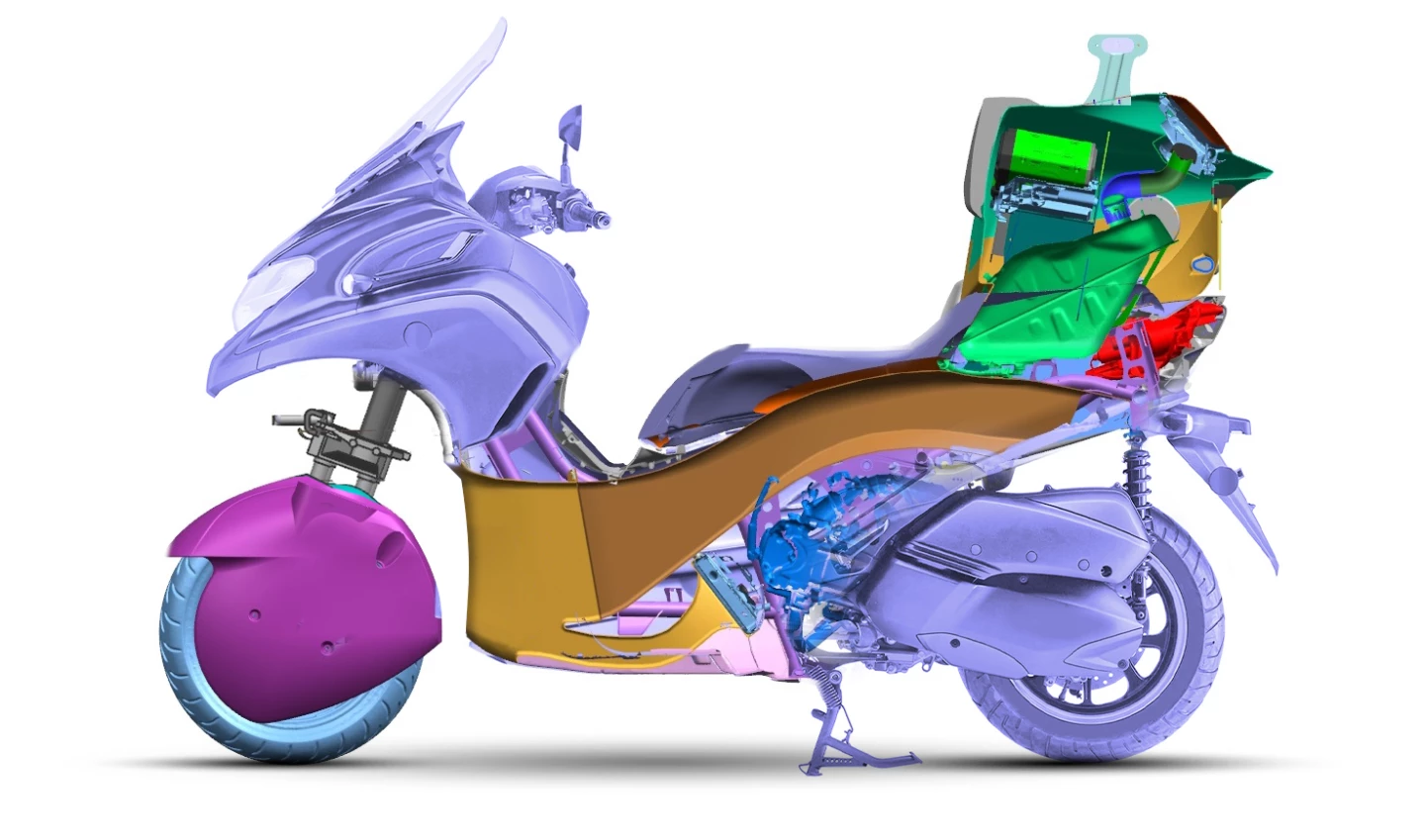UK company White Motorcycle Concepts likes using big holes for drag reduction. It put a particularly big hole in its electric land speed racer, and it's now announced another big hole in the middle of its new WMC300FR, a hybrid 3-wheel police scooter.
Where the big hole in the WMC250EV land speed bike is all about increasing top speed by reducing frontal area, the new scooter deploys the same concept in an effort to squeeze more range out of its mild hybrid powertrain.
The WMC300FR is based on Yamaha's tilting Tricity 300 3-wheeler, but it adds some 5 kW (6.7 horsepower) of electric assistance in the form of a small motor acting on the engine's countershaft, predominantly at lower speeds. A pair of small, 56-V, 12-Ah batteries, about as big what you'd find on an ebike, combine to provide a modest 1.34 kWh of energy for the electric system, and can be removed for charging or swapping.

It has also, as previously disclosed, got a big hole in it. Where the standard Tricity 300 has a step-through footwell and a pretty decent-sized storage bin under the seat, WMC has created an aero tunnel that scoops up air between the front wheels and gives it clear passage through the bike, exiting over the rear wheel – except for a small portion that's directed at the radiator.
It's a much less radical system than the one on the land speed bike, which punches such a big hole through the bike's frontal profile that it reduces drag by up to 69 percent. WMC hasn't released figures on the drag reduction effect it has on the scooter as yet, but says that the electric assist and the big hole combine to cut carbon emissions by up to 50 percent compared to a conventional motorcycle or scooter.

At this stage it's just a prototype, and it's unclear whether it's likely to go into production. Developed in partnership with the Northamptonshire Police and designed for first responders (well, ones that don't need to carry much in the top box or under the seat), this bike can legally be ridden with a regular car license in may countries. WMC says it's "just the starting point" for the company, which is looking to put big holes in other electric and hybrid streetbikes in the coming years.
Enjoy more pics in the gallery, and a video below.
Source: White Motorcycle Concepts










